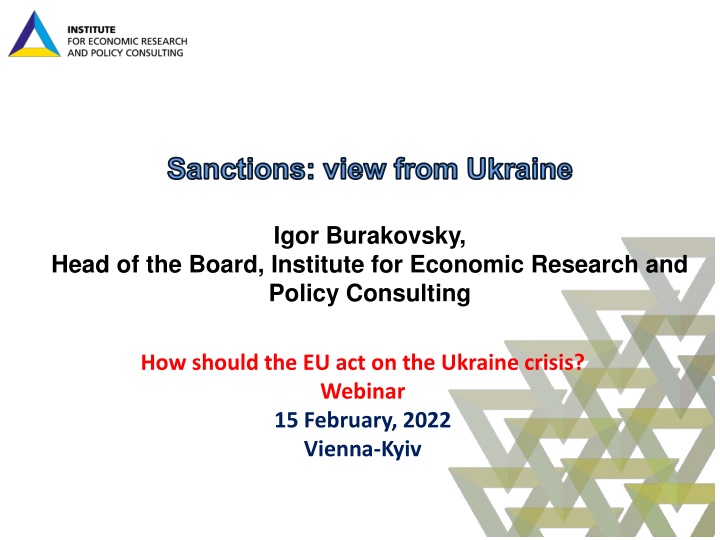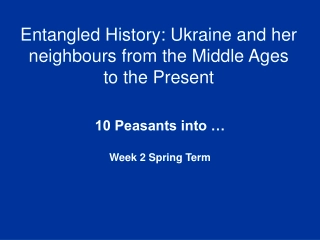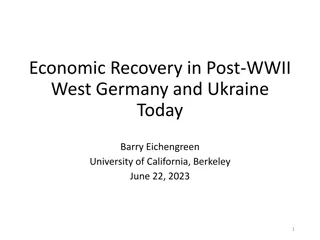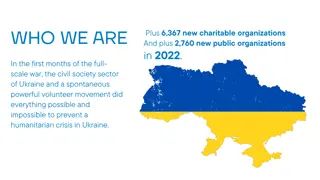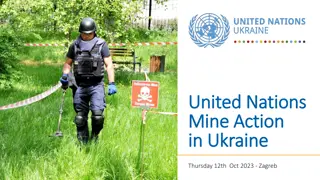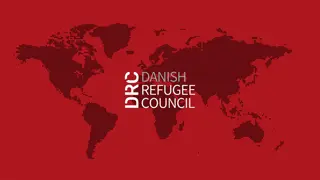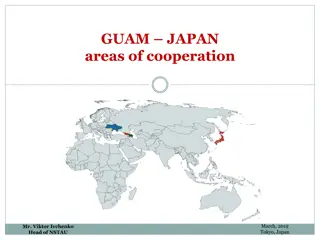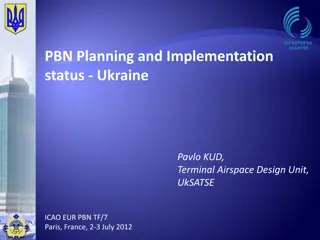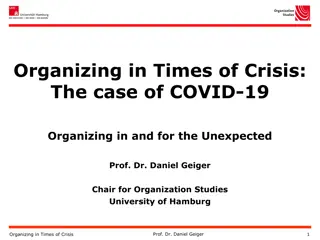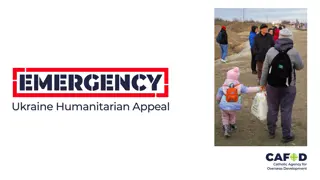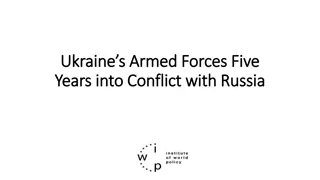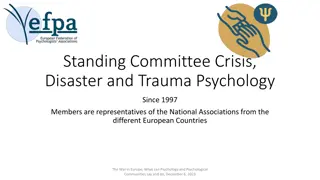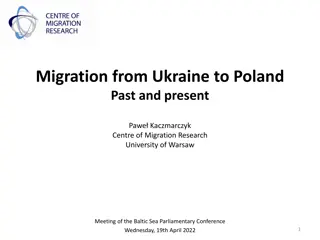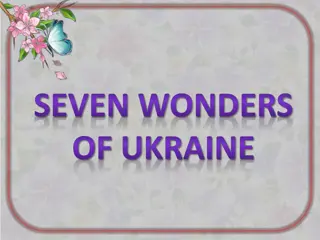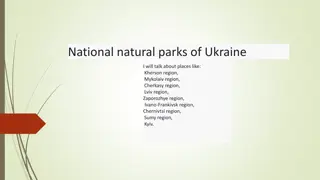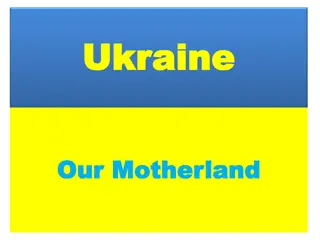EU Action on Ukraine Crisis
The webinar discusses how the EU should address the Ukraine crisis, focusing on sanctions against Russia. Different sanctions regimes and the economic implications are explored, along with potential future scenarios and considerations for the international community. Igor Burakovsky provides insights on the unique challenges posed by Russia's special status and the need for a well-coordinated sanctions policy.
Download Presentation

Please find below an Image/Link to download the presentation.
The content on the website is provided AS IS for your information and personal use only. It may not be sold, licensed, or shared on other websites without obtaining consent from the author.If you encounter any issues during the download, it is possible that the publisher has removed the file from their server.
You are allowed to download the files provided on this website for personal or commercial use, subject to the condition that they are used lawfully. All files are the property of their respective owners.
The content on the website is provided AS IS for your information and personal use only. It may not be sold, licensed, or shared on other websites without obtaining consent from the author.
E N D
Presentation Transcript
Sanctions: view from Ukraine Igor Burakovsky, Head of the Board, Institute for Economic Research and Policy Consulting How should the EU act on the Ukraine crisis? Webinar 15 February, 2022 Vienna-Kyiv
Sanctioning Russia: special policy case 2 Why Russia presents a special economic case : Russia is a Permanent member of UN Security Council with a special voting power. The "right to veto gives Russia possibility to block any UN Security Council decision to sanction against Russia and its allies. Therefore unilateral coercive measures is the only option. Specific Russian political economic structure: Russian strategic companies (especially wholly or partly state owned) have been directly or indirectly heavily engaged in Russian domestic and external policy implementation. Russia is a leading or large supplier of gas, oil, ferrous and non-ferrous metals, metallurgical and chemical products etc., and consumer of a wide variety of industrial and consumer goods. Such international presence immediately puts the issue of costs not only for the countries initiating sanctions but the issue of international implications of the sanctions in question. Russia s potential to mitigate sanctions induced economic shocks using various political, financial and regulatory tools.
3 Sanctions regimes 1. Post factum sanctions. Sanctions to punish for misbehavior (violations of international law) Sanctions on Russian companies and individuals in connection with the annexation of the Crimea and Russia's direct involvement in a military conflict in Eastern Ukraine (more than 500 companies and 300 individuals}. 2. Conditional sanctions. Sanctions to punish the country in case of resorting to certain actions. Sanctions on Russia in case of large scale military aggression. Currently under discussion. 3. Preventive sanctions. Sanctions imposed to prevent certain actions (wrongdoings). No discussion at the moment. Why?
4 Costs of sanctions: two issues 1. Costs of sanctions for Russia. Goal: making economic costs unbearable (provoking economic crisis? Economic collapse?) Preconditions: - Well-defined and well-coordinated sanctions policy; 2. Costs of sanctions for international community Goal: cost effective sanctions policy (acceptable price for the international community). Preconditions: - Well-defined and well-coordinated sanctions policy (the costs must be adequate no less, no more); - Measures to minimize the burden of sanctions if any (?);
Points for further discussions 5 1. Business in countries imposing sanctions: sharing costs of sanctions against as a form of global social responsibility (ethical business)? 2. Military de-escalation: sanctions strategy: If sanctions fail for some reasons what to do further on? If sanctions work what to do with sanctions package (keeping gunpowder dry)? If sanctions work partially (partial de-escalation) - what to do further on keeping sanctions, rewarding Russia on quid pro quo basis? If sanctions work perfectly this time - what to do in case of a new escalation applying previously agreed sanctions, designing new sanctions package, other response? Other scenarios?
6 Points 2 3. Strategic perspectives 1. De-escalation achieved is it possible to mobilize international community again (preserving current agreements)? 2. De-escalation achieved is it possible to use experience with de- escalation sanctions package (some elements?) to press Russia to withdraw from Eastern Ukraine and speed up de-occupation of Crimea? 3. De-escalation achieved - implications for the policy to restore Ukrainian territorial integrity and sovereignty over temporary occuppied Eastern territories and Cimea 3. De-escalation achieved implications for the international security system 4. De-escalation achieved implications for relations within Western community and Western relations with Ukraine Other perspectives?
7 Sanctions: three interrelated political goals Preventing Russia s large scale aggression (deescalation) Russia s withdrawal from Eastern Ukraine Deoccupation of Crimea
8 Ukraine: economy 1. Despite obvious negative effects of COVID-19 and Russian aggression Ukraine has demonstrated quite impressive economic resilience to these shocks: no banking crises, exchange rate fluctuations within acceptable limits etc., but high inflation, investors are very cautious (as usual) etc.). 2. Substantial external financial support. But there is a traditional challenge of Ukraine s limited absorptive capacity . Better donor coordination is needed. 3. Traditional structural problems are still there: challenge of pursuing reforms in the times of military escalation increasing the danger of direct Russian military aggression. 4. Trade relations with Russia and Belarus are still there but the scope of economic interaction decreased since the outburst of hostilities in 2014. In 2021 RF accounted for 5% of Ukrainian exports of goods and 8,4% of imports, Belarus for 1% and 1 % respectively. 5. External price shocks has affected Ukraine in different ways.
Thanks! ! Our contacts 8/5- Reytarska str., Kyiv 01030, Ukraine tel: +38-044-278-6360 e-mail: institute@ier.kyiv.ua Igor Burakovsky: burakovsky@ier.kyiv.ua www.ier.com.ua @IER_Kyiv IER.Kyiv 9
